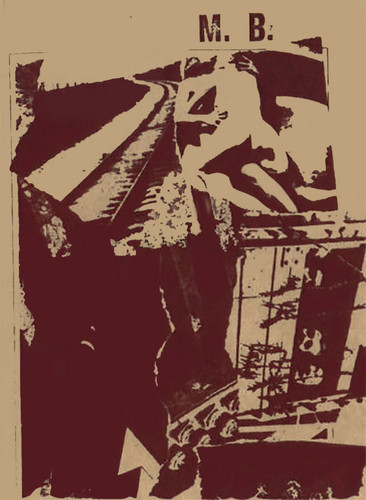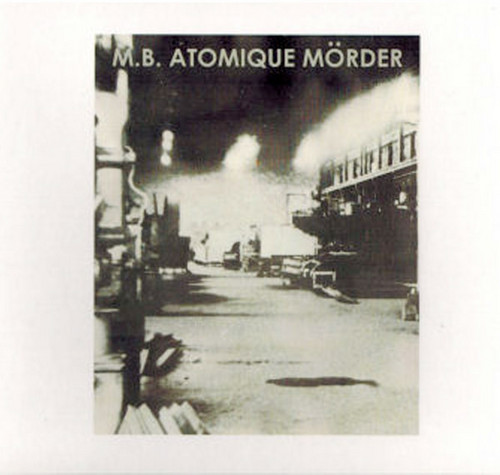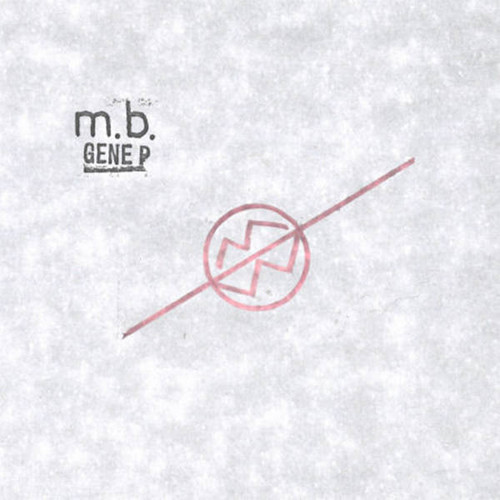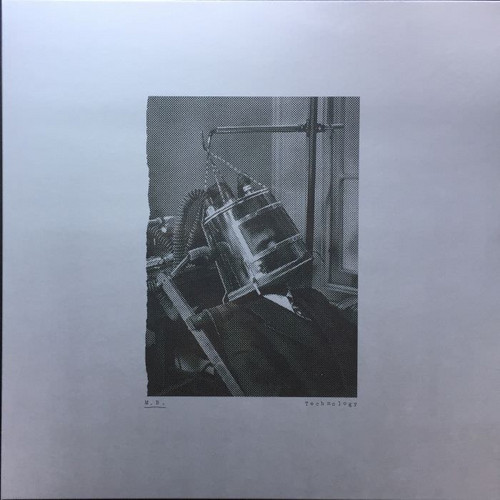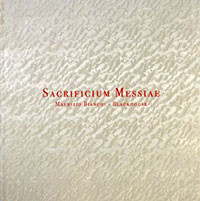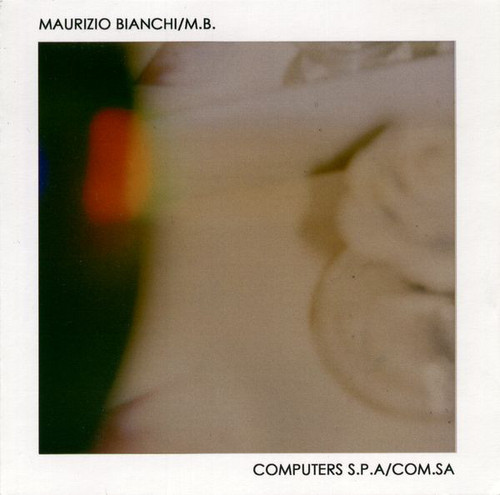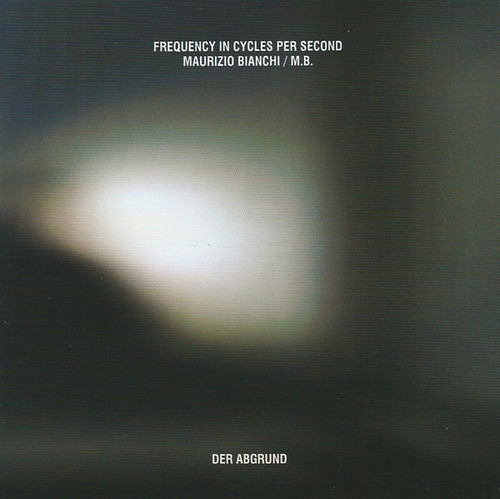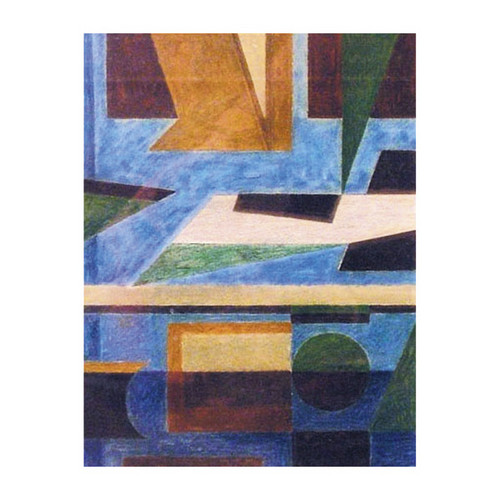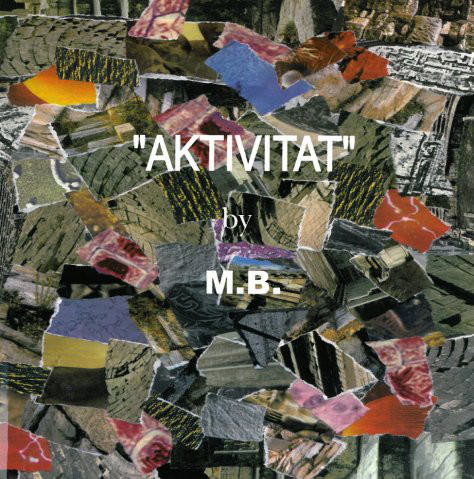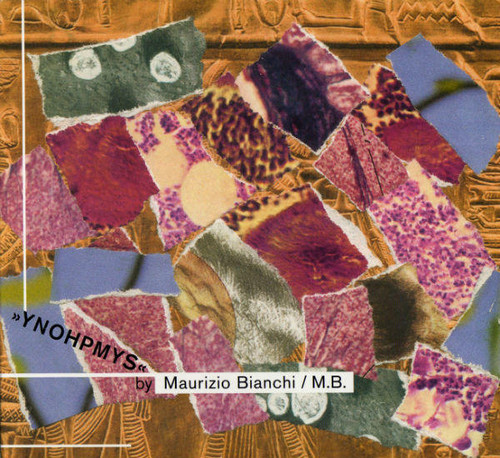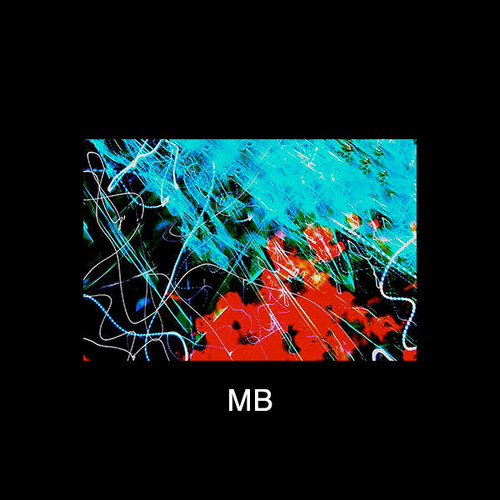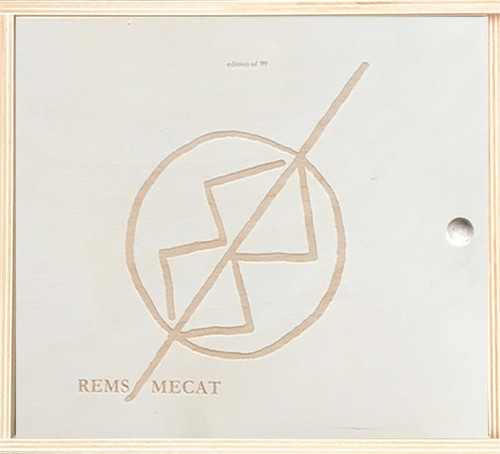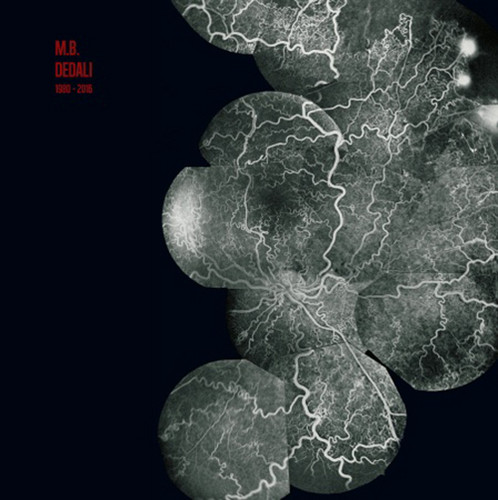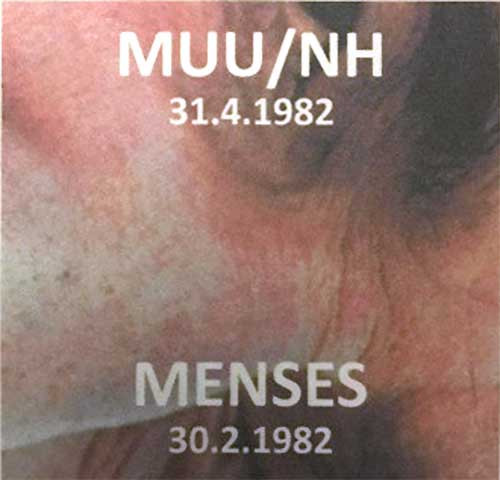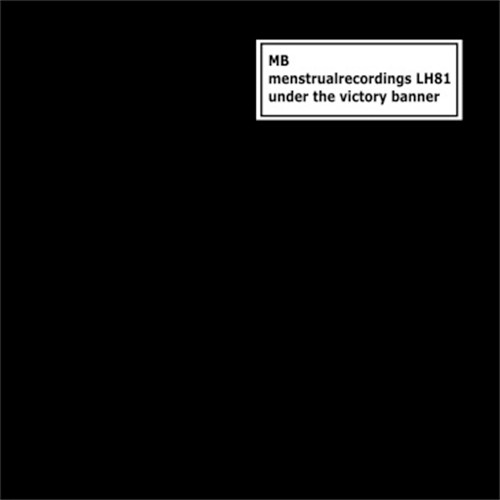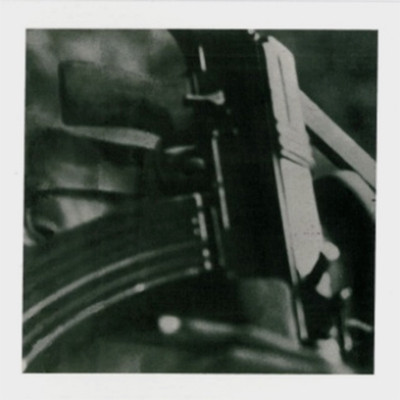Sacher-Pelz
Aliases: Maurizio Bianchi
T.M.C.T.B.
First ever re-issue of this mythical Maurizio Bianchi tape from 1981, featuring two long tracks 'The Maldoror's Coming' and 'To Birkenau'. The ape was recorded in Milano at Mectpyo Studio using concrete sounds and radio waves. Another very fascinating M.B. early experiment. Limited edition of 105 copies. Cover images are original M.B. artworks from the 80s.
Atomique Mörder
Limited edition of 100 copies in digipack. Second re-issue of this rare M.B. tape from 1980. The tape was only distributed in a handful of copies in 1980 and was later bootlegged on LP format in a truncated form in the 90s. Remastered from original tape. Cover images are 1980 artworks by M.B
Fragmentages
**Ltd 100 hand-numbered and signed copies** Softcover Book (208 pages - cm 20,5x22) + CD + 2 original collages by Maurizio Bianchi MB (cm 23x26). Fragmentages is a collection of 200 collages made by MB specifically for this project. The book comes with MB's latest audio work on CD and also includes two original collages from the collection. Each copy is therefore a unique piece, and absolute must for those who love the work of MB.In the fragmentary path of a few months, an imaginative project ha…
Gene-P
Limited edition of 100 copies in digipack. Decompostion for electrostatic loops and genewaves, conceived and released in April 1980 at Mectpyo Studio in Milan, Italy. Dedicated to the genetic puritanism. Originally released as a private cassette in 1980. Remastered from original tape. 'Gene P' was released as a cassette in 1980, and among the true Maurizio Bianchi devotees old = best.On the first track (both tracks are untitled) Bianchi uses tape-loops of what could vaguely sound like gamelan m…
Technology
Edition of 350 copies on black vinyl. The complete original double album on vinyl includes the 4 tracks from the original master tapes. The original tape from 1981 only included 2 tracks. Scientific principles that outline the mechanical and industrial sounds, while techno-steel artifices create impenetrable barriers of destructive notes that freeze ubiquity experimental mechanisms. The development of computerized progress finally undergoes its final productive annihilation. Maurizio Bianchi at …
Blackhouse - Sacrificium Messiae
Previously unreleased Maurizio Binachi recordings from 1983, backed with early Blackhouse recordings, which were only released before as bonus tracks on the rare American edition of the 'Pro-Life' CD in 1997. Edition on white-red splatter vinyl, limited to 80 copies.
Computers S.p.A. / Com.SA
Released 2010 by At War With False Noise: Second in the At War series of early CD issues of tapes by noise legend Maurizio Bianchi. This has been a long time coming and I promise the next installment (Mectypo/Blut since you ask) won't take so long and should surface early next year. Both these albums are lofi, featuring very primitive use of synthesizer, tape loops and tape manipulation. There's a real charm and otherworldly feel to them, There's something very prescient about MB's explorations …
Der Abgrund
"Der Abgrund is the last act of an unsolved theorem which must remains the same. It's the arcane enchanter of a denied truth since mimesis of itself, as not manifested manifestation that nevertheless perseveres on its concept of form beyond the form. It's omnivalent hypostasis of a prismatic Maurizio Bianchi who is annulling himself and reinvents between a climate and the other without solution of continuity, today in symbiotic communion with Frequency In Cycles Per Second. "Der Abgrund" is an o…
Pharmelodies
A colossal and epic post-ambient symphony in three movements, where echoes of string instruments, deep drones of indecipherable origin, layered synthetic waves, slowed-down and distorted dark sonic masses challenge time with a para-immobility in constant turmoil, in an unpredictable, progressive and sometimes cyclic combination of statuesque sonic forms whose physiognomy is often known and familiar, while at the same time elusive, disturbing, arcane and mysterious... Another highest and unmissab…
Aktivitat
Considered a high-water mark of early industrial, Maurizio Bianchi Aktivitat went against the grain prevalent at the time; rather than pushing the boundaries of volume and pummeling rhythm (for example), the album goes for lo-fi murk, where dour restraint is the tool of depressive darkness.
Ynohpmys
This Italian electronics maestro seems to be still going strong after
around 30 years with his latest release. Opener 'Ortini' is like the
hazey recollection of a long train journey being put through an analogue
filter bank. 'The Inflammatory Sesor' has a kind of feeling of
nostalgia or distant memory that recalls William Basinski or The
Caretaker. 'Oigada' sounds like two decomposing tape loops slightly out
of sync creating a disorientating phasing effect. There are some very
…
Mental Machination Musing
This is the first release from Maurizio Bianchi for Red Light sound. In memory of Pierpaolo Zoppo (April 27th, 1963 / June 16th, 2012). "...whereas you do not know what your life will be tomorrow. For you are a mist appearing for a little while and then disappearing." (James 4:14)I am extremely grateful to Siegmar Fricke for his pharmacologic mixture of the sounds. Maurizio Bianchi
Erthion
An unusual, very nice release for Maurizio Bianchi/M. B. playing droney electronics on this intimate work structured on the Biblical book of Lamentations. Ultra limited edition of 100 copies
dekadenz
An unusual, very nice release for Maurizio Bianchi/M. B. playing a decadent piano using sostenuto and damper pedals effects. Ultra limited edition of 100 copies
Complete discography vol I
** very last copies** Everything starts when Maurizio Bianchi from Milano, with many years spent as a music journalist, realizes that writing (a very personal style both lucid and delirious) is no longer enough to describe the sounds he has in his mind. In that moment he started to deal with tape recorders, turntables, synthesizers, microphones, self-producing tapes and records under the name M.B., creating his own circuit of fans and aficionados always ready to plunge themselves into the…
1980 - 2016
M.B. - 31.04.1980 was recorded at Mectpyo Studio, Milano, in April 1980. Unreleased track. A musique concrete track made mostly using lp records played at the wrong speed and made into frantic loops. There are also the occasional and unexpected bits of dialogue! A very interesting M.B. early experiment.
Dedali - 31.04.2016 was recorded at The Shadow Factory, Lugano, in April 2016. A dense and hypnotic track. Dedali here uses treated field recordings and voice samples creating a very warm organi…
Muu/Nh 31.4.1982 / Menses 30.2.1982
First ever official CD re-issue of Maurizio Bianchi two albums recorded in 1982. "When in the summer of 1982 I bought a device for the echoes, my twisted idea was to transform pre-recorded sounds into something inaudible and shocking, while keeping intact the original intensity. And so I proceeded to transform Menses and Moerder Unter Uns in two bloody clumps of foggy echoes and dark reverberations. Thus they were birthed the two works in question, which came to light in very few copies, only fo…
Under the Victory Banner
Under the Victory Banner was first published as part of the Lp "Weltanschauung" in February 1982 by Come Organisation, UK.This limited edition box set contains the track Under The Victory Banner on 3 different formats: a 7" pressed on a violet vinyl, a violet cassette and a professionally printed CD-R. Also included is an insert with an unpublished M.B. artwork from 1980. All insert are signed by Maurizio Bianchi / M.B. Limited edition of 30 numbered copies. Ins…
Nervous Hydra / All This Has Passed Forever
Stunning split release between Maurizio Bianchi, godfather of the Italian industrial noise scene, and Abul Mogard, the much loved and hyperstitious synthesist, conjuring a spellbinding testament to the transcendent and transportive energies of electronic music. Although appearing to starkly contrast on the surface, both artist’s work patently shares a lust for the suggestive abstraction of raw current and its pareidolia-like capacity to generate rich and uncanny emotional responses from the end…
Mörder Tape
First ever re-issue of this mythical Maurizio Bianchi tape from 1980. Mörder Tape was recorded in Milano at Mectpyo Studio using concrete sounds and radio waves. Another very fascinating M.B. early experiment. Limited edition of 150 copies in digipack. Cover images are original M.B. artworks from 1980.
